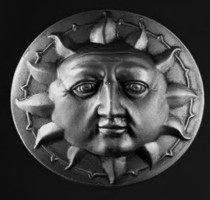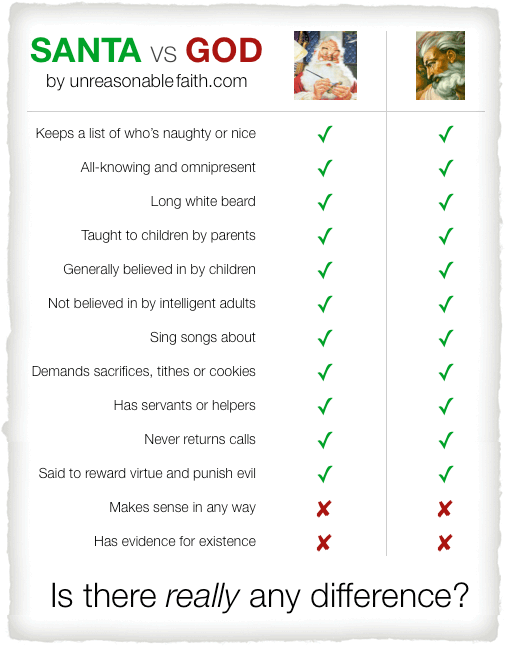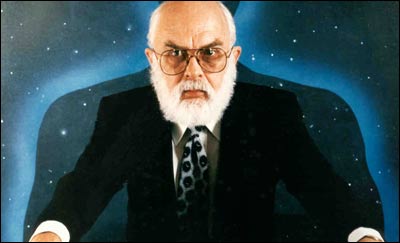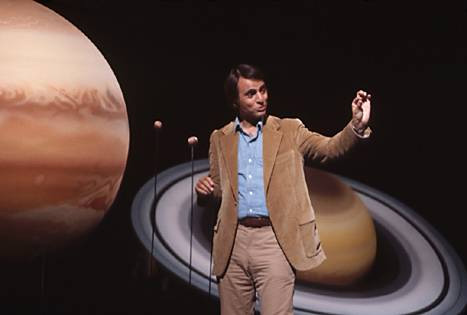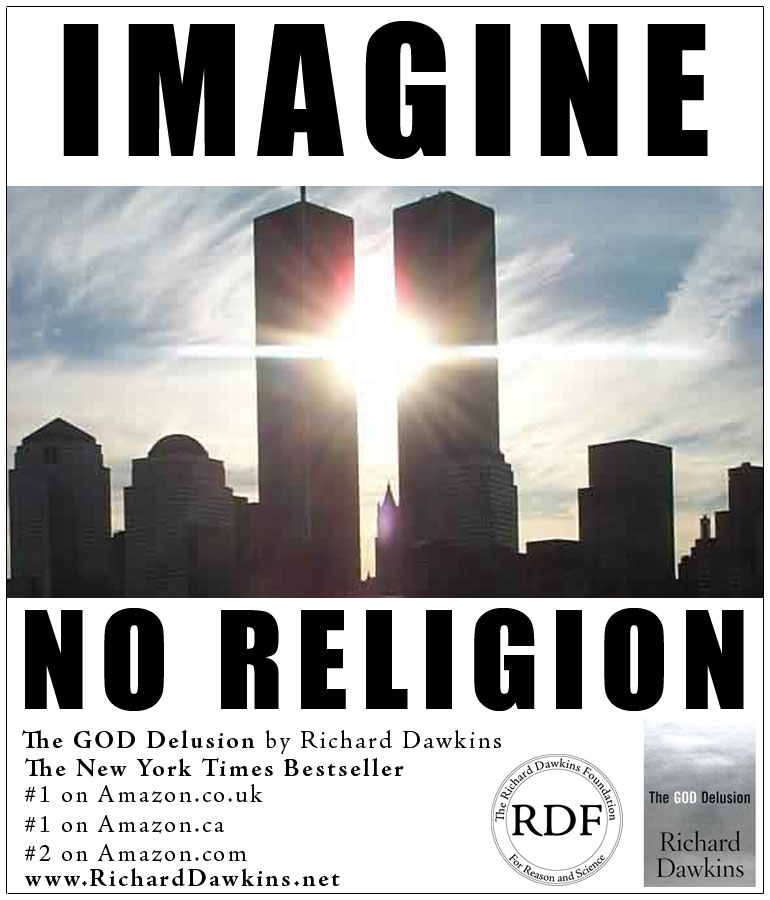As such, I present to you an essay from Jim Walker. I can only hope that eventually we will have no need for this essay, and can agree that the government of the United States is secular (notice I didn't say atheist either!).
A few Christian fundamentalists attempt to convince us to return to the Christianity of early America, yet according to the historian, Robert T. Handy, "No more than 10 percent-- probably less-- of Americans in 1800 were members of congregations."
The Founding Fathers, also, rarely practiced Christian orthodoxy. Although they supported the free exercise of any religion, they understood the dangers of religion. Most of them believed in deism and attended Freemasonry lodges. According to John J. Robinson, "Freemasonry had been a powerful force for religious freedom." Freemasons took seriously the principle that men should worship according to their own conscience. Masonry welcomed anyone from any religion or non-religion, as long as they believed in a Supreme Being. Washington, Franklin, Hancock, Hamilton, Lafayette, and many others accepted Freemasonry.
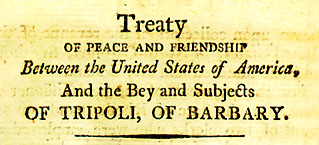
The Constitution reflects our founders views of a secular government, protecting the freedom of any belief or unbelief. The historian, Robert Middlekauff, observed, "the idea that the Constitution expressed a moral view seems absurd. There were no genuine evangelicals in the Convention, and there were no heated declarations of Christian piety."
George Washington
Much of the myth of Washington's alleged Christianity came from Mason Weems influential book, "Life of Washington." The story of the cherry tree comes from this book and it has no historical basis. Weems, a Christian minister portrayed Washington as a devout Christian, yet Washington's own diaries show that he rarely attended Church.
Washington revealed almost nothing to indicate his spiritual frame of mind, hardly a mark of a devout Christian. In his thousands of letters, the name of Jesus Christ never appears. He rarely spoke about his religion, but his Freemasonry experience points to a belief in deism. Washington's initiation occurred at the Fredericksburg Lodge on 4 November 1752, later becoming a Master mason in 1799, and remained a freemason until he died.
To the United Baptist Churches in Virginia in May, 1789, Washington said that every man "ought to be protected in worshipping the Deity according to the dictates of his own conscience."
After Washington's death, Dr. Abercrombie, a friend of his, replied to a Dr. Wilson, who had interrogated him about Washington's religion replied, "Sir, Washington was a Deist."
Thomas Jefferson
Even most Christians do not consider Jefferson a Christian. In many of his letters, he denounced the superstitions of Christianity. He did not believe in spiritual souls, angels or godly miracles. Although Jefferson did admire the morality of Jesus, Jefferson did not think him divine, nor did he believe in the Trinity or the miracles of Jesus. In a letter to Peter Carr, 10 August 1787, he wrote, "Question with boldness even the existence of a god."
Jefferson believed in materialism, reason, and science. He never admitted to any religion but his own. In a letter to Ezra Stiles Ely, 25 June 1819, he wrote, "You say you are a Calvinist. I am not. I am of a sect by myself, as far as I know."
John Adams
 John Adams
John AdamsAdams, a Unitarian, flatly denied the doctrine of eternal damnation. In a letter to Thomas Jefferson, he wrote:
"I almost shudder at the thought of alluding to the most fatal example of the abuses of grief which the history of mankind has preserved -- the Cross. Consider what calamities that engine of grief has produced!"
In his letter to Samuel Miller, 8 July 1820, Adams admitted his unbelief of Protestant Calvinism: "I must acknowledge that I cannot class myself under that denomination."
In his, "A Defence of the Constitutions of Government of the United States of America" [1787-1788], John Adams wrote:
"The United States of America have exhibited, perhaps, the first example of governments erected on the simple principles of nature; and if men are now sufficiently enlightened to disabuse themselves of artifice, imposture, hypocrisy, and superstition, they will consider this event as an era in their history. Although the detail of the formation of the American governments is at present little known or regarded either in Europe or in America, it may hereafter become an object of curiosity. It will never be pretended that any persons employed in that service had interviews with the gods, or were in any degree under the influence of Heaven, more than those at work upon ships or houses, or laboring in merchandise or agriculture; it will forever be acknowledged that these governments were contrived merely by the use of reason and the senses.
". . . Thirteen governments [of the original states] thus founded on the natural authority of the people alone, without a pretence of miracle or mystery, and which are destined to spread over the northern part of that whole quarter of the globe, are a great point gained in favor of the rights of mankind."
James Madison
Called the father of the Constitution, Madison had no conventional sense of Christianity. In 1785, Madison wrote in his Memorial and Remonstrance against Religious Assessments:
"During almost fifteen centuries has the legal establishment of Christianity been on trial. What have been its fruits? More or less in all places, pride and indolence in the Clergy, ignorance and servility in the laity; in both, superstition, bigotry and persecution."
"What influence, in fact, have ecclesiastical establishments had on society? In some instances they have been seen to erect a spiritual tyranny on the ruins of the civil authority; on many instances they have been seen upholding the thrones of political tyranny; in no instance have they been the guardians of the liberties of the people. Rulers who wish to subvert the public liberty may have found an established clergy convenient auxiliaries. A just government, instituted to secure and perpetuate it, needs them not."
Benjamin Franklin
Although Franklin received religious training, his nature forced him to rebel against the irrational tenets of his parents Christianity. His Autobiography revels his skepticism, "My parents had given me betimes religions impressions, and I received from my infancy a pious education in the principles of Calvinism. But scarcely was I arrived at fifteen years of age, when, after having doubted in turn of different tenets, according as I found them combated in the different books that I read, I began to doubt of Revelation itself.
". . . Some books against Deism fell into my hands. . . It happened that they wrought an effect on my quite contrary to what was intended by them; for the arguments of the Deists, which were quoted to be refuted, appeared to me much stronger than the refutations; in short, I soon became a through Deist."
In an essay on "Toleration," Franklin wrote:
"If we look back into history for the character of the present sects in Christianity, we shall find few that have not in their turns been persecutors, and complainers of persecution. The primitive Christians thought persecution extremely wrong in the Pagans, but practiced it on one another. The first Protestants of the Church of England blamed persecution in the Romish church, but practiced it upon the Puritans. These found it wrong in the Bishops, but fell into the same practice themselves both here [England] and in New England."
Dr. Priestley, an intimate friend of Franklin, wrote of him:
"It is much to be lamented that a man of Franklin's general good character and great influence should have been an unbeliever in Christianity, and also have done as much as he did to make others unbelievers" (Priestley's Autobiography)
Thomas Paine
This freethinker and author of several books, influenced more early Americans than any other writer. Although he held Deist beliefs, he wrote in his famous The Age of Reason:
"I do not believe in the creed professed by the Jewish church, by the Roman church, by the Greek church, by the Protestant church, nor by any church that I know of. My own mind is my church. "
"Of all the systems of religion that ever were invented, there is no more derogatory to the Almighty, more unedifiying to man, more repugnant to reason, and more contradictory to itself than this thing called Christianity. "
The U.S. Constitution
The most convincing evidence that our government did not ground itself upon Christianity comes from the very document that defines it-- the United States Constitution.
If indeed our Framers had aimed to found a Christian republic, it would seem highly unlikely that they would have forgotten to leave out their Christian intentions in the Supreme law of the land. In fact, nowhere in the Constitution do we have a single mention of Christianity, God, Jesus, or any Supreme Being. There occurs only two references to religion and they both use exclusionary wording. The 1st Amendment's says, "Congress shall make no law respecting an establishment of religion. . ." and in Article VI, Section 3, ". . . no religious test shall ever be required as a qualification to any office or public trust under the United States."
Thomas Jefferson interpreted the 1st Amendment in his famous letter to the Danbury Baptist Association in January 1, 1802:
"I contemplate with sovereign reverence that act of the whole American people which declared that their legislature should 'make no law respecting an establishment of religion, or prohibiting the free exercise thereof,' thus building a wall of separation between church and State."
Some Religious activists try to extricate the concept of separation between church and State by claiming that those words do not occur in the Constitution. Indeed they do not, but neither does it exactly say "freedom of religion," yet the First Amendment implies both.
As Thomas Jefferson wrote in his Autobiography, in reference to the Virginia Act for Religious Freedom:
"Where the preamble declares, that coercion is a departure from the plan of the holy author of our religion, an amendment was proposed by inserting "Jesus Christ," so that it would read "A departure from the plan of Jesus Christ, the holy author of our religion;" the insertion was rejected by the great majority, in proof that they meant to comprehend, within the mantle of its protection, the Jew and the Gentile, the Christian and Mohammedan, the Hindoo and Infidel of every denomination."
James Madison, perhaps the greatest supporter for separation of church and State, and whom many refer to as the father of the Constitution, also held similar views which he expressed in his letter to Edward Livingston, 10 July 1822:
"And I have no doubt that every new example will succeed, as every past one has done, in shewing that religion & Govt will both exist in greater purity, the less they are mixed together."
Today, if ever our government needed proof that the separation of church and State works to ensure the freedom of religion, one only need to look at the plethora of Churches, temples, and shrines that exist in the cities and towns throughout the United States. Only a secular government, divorced from religion could possibly allow such tolerant diversity.
The Declaration of Independence
Many Christians who think of America as founded upon Christianity usually present the Declaration as "proof." The reason appears obvious: the document mentions God. However, the God in the Declaration does not describe Christianity's God. It describes "the Laws of Nature and of Nature's God." This nature's view of God agrees with deist philosophy but any attempt to use the Declaration as a support for Christianity will fail for this reason alone.
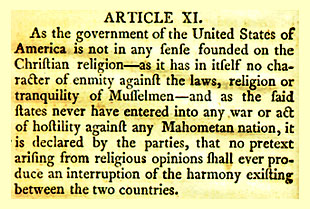 Article XI from the Treaty of Tripoli
Article XI from the Treaty of Tripoli More significantly, the Declaration does not represent the law of the land as it came before the Constitution. The Declaration aimed at announcing their separation from Great Britain and listed the various grievances with the "thirteen united States of America." The grievances against Great Britain no longer hold, and we have more than thirteen states. Today, the Declaration represents an important historical document about rebellious intentions against Great Britain at a time before the formation of our independent government. Although the Declaration may have influential power, it may inspire the lofty thoughts of poets, and judges may mention it in their summations, it holds no legal power today. Our presidents, judges and policemen must take an oath to uphold the Constitution, but never to the Declaration of Independence.
Of course the Declaration depicts a great political document, as it aimed at a future government upheld by citizens instead of a religious monarchy. It observed that all men "are created equal" meaning that we all come inborn with the abilities of life, liberty and the pursuit of happiness. That "to secure these rights, governments are instituted among men." The Declaration says nothing about our rights secured by Christianity, nor does it imply anything about a Christian foundation.
Treaty of Tripoli
Unlike governments of the past, the American Fathers set up a government divorced from religion. The establishment of a secular government did not require a reflection to themselves about its origin; they knew this as an unspoken given. However, as the U.S. delved into international affairs, few foreign nations knew about the intentions of America. For this reason, an insight from at a little known but legal document written in the late 1700s explicitly reveals the secular nature of the United States to a foreign nation. Officially called the "Treaty of peace and friendship between the United States of America and the Bey and Subjects of Tripoli, of Barbary," most refer to it as simply the Treaty of Tripoli. In Article 11, it states:
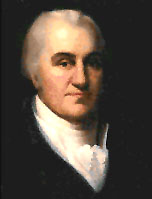 Joel Barlow, U.S. Consul General of Algiers
Joel Barlow, U.S. Consul General of AlgiersCopyright National Portait Gallery Smithsonian Institution/Art Resource NY
"As the Government of the United States of America is not in any sense founded on the Christian religion; as it has in itself no character of enmity against the laws, religion, or tranquillity, of Musselmen; and as the said States never have entered into any war or act of hostility against any Mehomitan nation, it is declared by the parties that no pretext arising from religious opinions shall ever produce an interruption of the harmony existing between the two countries."
The preliminary treaty began with a signing on 4 November, 1796 (the end of George Washington's last term as president). Joel Barlow, the American diplomat served as counsel to Algiers and held responsibility for the treaty negotiations. Barlow had once served under Washington as a chaplain in the revolutionary army. He became good friends with Paine, Jefferson, and read Enlightenment literature. Later he abandoned Christian orthodoxy for rationalism and became an advocate of secular government. Barlow, along with his associate, Captain Richard O'Brien, et al, translated and modified the Arabic version of the treaty into English. From this came the added Amendment 11. Barlow forwarded the treaty to U.S. legislators for approval in 1797. Timothy Pickering, the secretary of state, endorsed it and John Adams concurred (now during his presidency), sending the document on to the Senate. The Senate approved the treaty on June 7, 1797, and officially ratified by the Senate with John Adams signature on 10 June, 1797. All during this multi-review process, the wording of Article 11 never raised the slightest concern. The treaty even became public through its publication in The Philadelphia Gazette on 17 June 1797.
So here we have a clear admission by the United States that our government did not found itself upon Christianity. Unlike the Declaration of Independence, this treaty represented U.S. law as all treaties do according to the Constitution (see Article VI, Sect. 2).
Although the Christian exclusionary wording in the Treaty of Tripoli only lasted for eight years and no longer has legal status, it clearly represented the feelings of our Founding Fathers at the beginning of the U.S. government.
Common Law
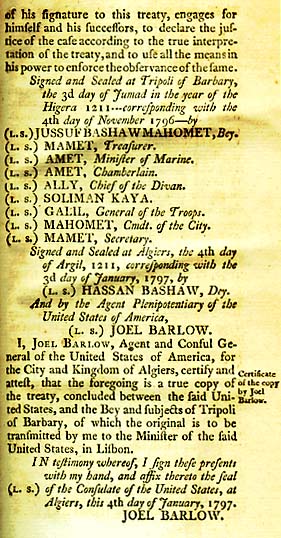 Signers of the Treaty of Tripoli
Signers of the Treaty of Tripoli According to the Constitution's 7th Amendment: "In suits at common law. . . the right of trial by jury shall be preserved; and no fact, tried by a jury, shall be otherwise re-examined in any court of the United States than according to the rules of the common law."
Here, many Christians believe that common law came from Christian foundations and therefore the Constitution derives from it. They use various quotes from Supreme Court Justices proclaiming that Christianity came as part of the laws of England, and therefore from its common law heritage.
But one of our principle Founding Fathers, Thomas Jefferson, elaborated about the history of common law in his letter to Thomas Cooper on February 10, 1814:
"For we know that the common law is that system of law which was introduced by the Saxons on their settlement in England, and altered from time to time by proper legislative authority from that time to the date of Magna Charta, which terminates the period of the common law. . . This settlement took place about the middle of the fifth century. But Christianity was not introduced till the seventh century; the conversion of the first christian king of the Heptarchy having taken place about the year 598, and that of the last about 686. Here then, was a space of two hundred years, during which the common law was in existence, and Christianity no part of it.
". . . if any one chooses to build a doctrine on any law of that period, supposed to have been lost, it is incumbent on him to prove it to have existed, and what were its contents. These were so far alterations of the common law, and became themselves a part of it. But none of these adopt Christianity as a part of the common law. If, therefore, from the settlement of the Saxons to the introduction of Christianity among them, that system of religion could not be a part of the common law, because they were not yet Christians, and if, having their laws from that period to the close of the common law, we are all able to find among them no such act of adoption, we may safely affirm (though contradicted by all the judges and writers on earth) that Christianity neither is, nor ever was a part of the common law."
In the same letter, Jefferson examined how the error spread about Christianity and common law. Jefferson realized that a misinterpretation had occurred with a Latin term by Prisot, "*ancien scripture*," in reference to common law history. The term meant "ancient scripture" but people had incorrectly interpreted it to mean "Holy Scripture," thus spreading the myth that common law came from the Bible. Jefferson writes:
"And Blackstone repeats, in the words of Sir Matthew Hale, that 'Christianity is part of the laws of England,' citing Ventris and Strange ubi surpa. 4. Blackst. 59. Lord Mansfield qualifies it a little by saying that 'The essential principles of revealed religion are part of the common law." In the case of the Chamberlain of London v. Evans, 1767. But he cites no authority, and leaves us at our peril to find out what, in the opinion of the judge, and according to the measure of his foot or his faith, are those essential principles of revealed religion obligatory on us as a part of the common law."
Thus we find this string of authorities, when examined to the beginning, all hanging on the same hook, a perverted expression of Priscot's, or on one another, or nobody."
The Encyclopedia Britannica, also describes the Saxon origin and adds: "The nature of the new common law was at first much influenced by the principles of Roman law, but later it developed more and more along independent lines." Also prominent among the characteristics that derived out of common law include the institution of the jury, and the right to speedy trial.
Christian Sources
Virtually all the evidence that attempts to connect a foundation of Christianity upon the government rests mainly on quotes and opinions from a few of the colonial statesmen who had professed a belief in Christianity. Sometimes the quotes come from their youth before their introduction to Enlightenment ideas or simply from personal beliefs. But statements of beliefs, by themselves, say nothing about Christianity as the source of the U.S. government.
There did occur, however, some who wished a connection between church and State. Patrick Henry, for example, proposed a tax to help sustain "some form of Christian worship" for the state of Virginia. But Jefferson and other statesmen did not agree. In 1779, Jefferson introduced a bill for the Statute for Religious Freedom which became Virginia law. Jefferson designed this law to completely separate religion from government. None of Henry's Christian views ever got introduced into Virginia's or U.S. Government law.
Unfortunately, later developments in our government have clouded early history. The original Pledge of Allegiance, authored by Francis Bellamy in 1892 did not contain the words "under God." Not until June 1954 did those words appear in the Allegiance. The United States currency never had "In God We Trust" printed on money until after the Civil War. Many Christians who visit historical monuments and see the word "God" inscribed in stone, automatically impart their own personal God of Christianity, without understanding the Framers Deist context.
In the Supreme Court's 1892 Holy Trinity Church vs. United States, Justice David Brewer wrote that "this is a Christian nation." Many Christians use this as evidence. However, Brewer wrote this in dicta, as a personal opinion only and does not serve as a legal pronouncement. Later Brewer felt obliged to explain himself: "But in what sense can [the United States] be called a Christian nation? Not in the sense that Christianity is the established religion or the people are compelled in any manner to support it. On the contrary, the Constitution specifically provides that 'Congress shall make no law respecting an establishment of religion or prohibiting the free exercise thereof.' Neither is it Christian in the sense that all its citizens are either in fact or in name Christians. On the contrary, all religions have free scope within its borders. Numbers of our people profess other religions, and many reject all."
Conclusion
The Framers derived an independent government out of Enlightenment thinking against the grievances caused by Great Britain. Our Founders paid little heed to political beliefs about Christianity. The 1st Amendment stands as the bulkhead against an establishment of religion and at the same time insures the free expression of any belief. The Treaty of Tripoli, an instrument of the Constitution, clearly stated our non-Christian foundation. We inherited common law from Great Britain which derived from pre-Christian Saxons rather than from Biblical scripture.
Today we have powerful Christian organizations who work to spread historical myths about early America and attempt to bring a Christian theocracy to the government. If this ever happens, then indeed, we will have ignored the lessons from history. Fortunately, most liberal Christians today agree with the principles of separation of church and State, just as they did in early America.
"They all attributed the peaceful dominion of religion in their country mainly to the separation of church and state. I do not hesitate to affirm that during my stay in America I did not meet a single individual, of the clergy or the laity, who was not of the same opinion on this point"
-Alexis de Tocqueville, Democracy in America, 1835
Bibliography
Borden, Morton, "Jews, Turks, and Infidels," The University of North Carolina Press, 1984
Boston, Robert, "Why the Religious Right is Wrong About Separation of Church & State, "Prometheus Books, 1993
Boston, F. Andrews, et al, "The Writings of George Washington," (12 Vols.), Charleston, S.C., 1833-37
Fitzpatrick, John C., ed., "The Diaries of George Washington, 1748-1799," Houghton Mifflin Company: Published for the Mount Vernon Ladies Association of the Union, 1925
Gay, Kathlyn, "Church and State,"The Millbrook Press," 1992
Handy, Robert, T., "A History of the Churches in U.S. and Canada," New York: Oxford University Press, 1977
Hayes, Judith, "All those Christian Presidents," [The American Rationalist, March/April 1997]
Kock, Adrienne, ed., "The American Enlightenment: The Shaping of the American Experiment and a Free Society," New York: George Braziller, 1965
Mapp, Jr, Alf J., "Thomas Jefferson," Madison Books, 1987
Middlekauff, Robert, "The Glorious Cause," Oxford University Press, 1982
Miller, Hunter, ed., "Treaties and other International Acts of the United States of America," Vol. 2, Documents 1-40: 1776-1818, United States Government Printing Office, Washington: 1931
Peterson, Merrill D., "Thomas Jefferson Writings," The Library of America, 1984
Remsburg, John E., "Six Historic Americans," The Truth Seeker Company, New York
Robinson, John J., "Born in Blood," M. Evans & Company, New York, 1989
Roche, O.I.A., ed, "The Jefferson Bible: with the Annotated Commentaries on Religion of Thomas Jefferson," Clarkson N. Potter, Inc., 1964
Seldes, George, ed., "The Great Quotations," Pocket Books, New York, 1967
Sweet, William W., "Revivalism in America, its origin, growth and decline," C. Scribner's Sons, New York, 1944
Woodress, James, "A Yankee's Odyssey, the Life of Joel Barlow," J. P. Lippincott Co., 1958
Encyclopedia sources:
Common law: Encyclopedia Britannica, Vol. 6, "William Benton, Publisher, 1969
Declaration of Independence: MicroSoft Encarta 1996 Encyclopedia, MicroSoft Corp., Funk & Wagnalls Corporation.
In God We Trust: MicroSoft Encarta 1996 Encyclopedia, MicroSoft Corp., Funk & Wagnalls Corporation.
Pledge of Allegiance: Academic American Encyclopedia, Vol. 15, Grolier Incorporated, Danbury, Conn., 1988
Special thanks to Ed Buckner, Robert Boston, Selena Brewington and Lion G. Miles, for help in providing me with source materials.




